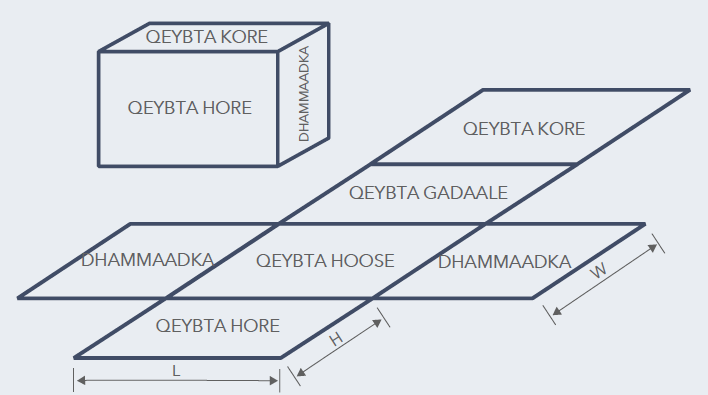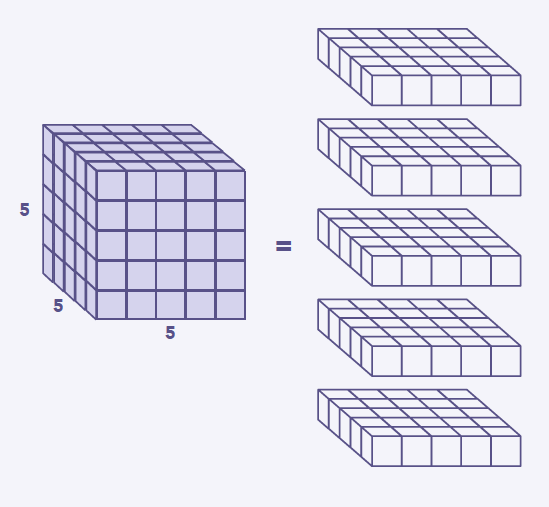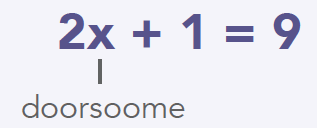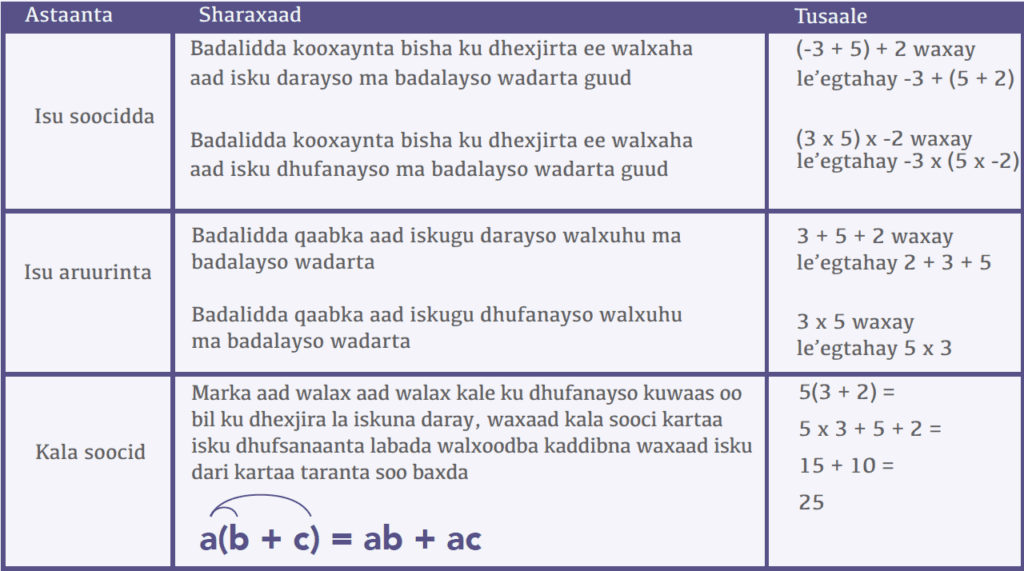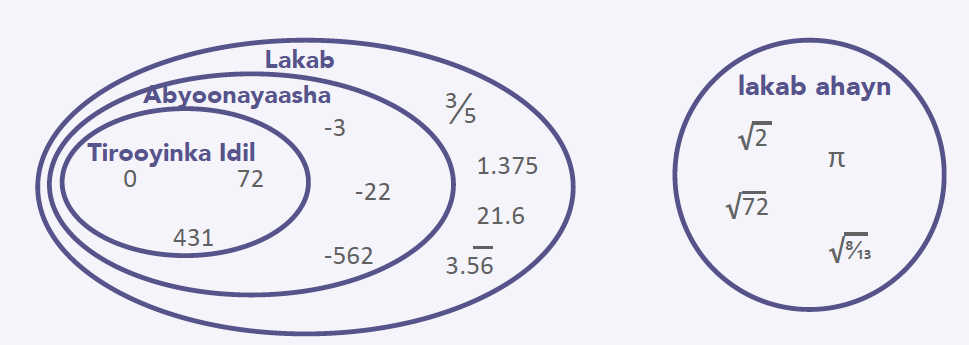Faniga Luuqadda Ingiriisiga
Ardayda fasalka 6-aad
Hagahani waxa uu kaa caawin doonaa in aad fahamto nuxurka ugu muhiimsan (cilmiga & xirfadaha) ee ay tahay in canugaadu ogaado iyo siyaabaha aad ku taageeri karto waxbarashada ubadkaaga inta ay ku jiraan.
Talo: dul rog icons si aad u aragto qeexida ereyada muhiimka ah
Tani waxay tusaale u tahay hanuuninta

Rajada Ardayda
Ardayda fasalka 6aad waxay u baahan yihiin in ay ogaadaan sida howlaha hoose loo qabto marka la gaaro dhammaadka sannadka:
XIRFADAHA AKHRIS-QORAALKA
Waa in ay akhriyaan qoraalka heerka fasalka 6aad ah, kaasoo ah heerka Lexile 925-1185
Waa in ay si wanaagsan u akhriyaan qoraalka fasalka 6aad, kaasoo ah 110-160 erey halkii daqiiqo
Waa in ay akhriyaan ayaga oo tilmaamo bixinaya si ay u muujiyaan inay fahmeen qoraalka marka ay akhrinayaan
Waa in ay qoraan ayna muraajiceeyaan qoraalada. Waa in ay adeegsadaan hikaadda, naxwaha, xarfaha waaweyn, iyo calaamadaha xarakaynta ah, oo ay kujiraan kuwaan:

Waa in ay isticmaalaan teknoolojiyadda si ay wax u qoraan ulana shaqeeyaan kuwa kale cilmibaarisna ugu sameeyaan mowduuc ayaga oo isticmaalaya ilo la isku haleyn karo
Waa in aysan marna minguurin shaqada aysan ayagu lahayn, taasoo loo yaqaano qish
Waa in ay fahmaan raadkooda dhijitaalka ah , kaasoo ah waddada xogta aan dhammaanteen kaga tagno internetka
Waa in ay 33 erey ku qoraan halkii daqiiqo. Waa in ay ku qoraan saddex bog halkii saac
WAX KABARASHADA DUNIDA IYADA OO LA ADEEGSANAYO WAX AKHRIS
Waa in ay su’aalo weydiiyaan kana jawaabaan qoraalka ay akhriyaan. Waa in ay dib u qoraan qoraalka si ay u helaan macluumaad gaar ah si ay u xoojiyaan fahamkooda. Waa in ay awoodaan samaynta waxyaabaha soo socda:
- Waa in ay helaan mowduucyada, qodobada muhiimka ah, iyo fikradaha guud
- Waa in ay si toos ah usoo xigtaan ayna si kale u qor isla micnaha qoraalka
- Waa in ay bartaan sida qof muhiim ah, dhacdo, ama fikrad loo soo bandhigo iyo qaabka ay isu badalaan
- Waa in uu sharraxaa qaabka qaybaha kala duwan ee qoraalku u saamaynayo micnaha
- Waa in ay qeexaan qaabka sheekadu u socoto iyo qaabka jilayaashu uga jawaabaan
- Waa in ay bartaan qaabka qoraaga iyo aragtidiisu u saamaynayso qoraalka
- Su’aalaa waxa qoraaga ama afkaarta qofka hadlaya uu soo qaato
Waa in ay helaan micnaha ereyo cusub ayaga oo adeegsanaya fikradaha kujira qoraalka, qaamuusyada, ama ereyga asalka ah
Waa in ay wax ka qoraan waxa ay akhrinayaan. Waa in ay wax ka qoraan qaabkaan: gogoldhigga sheegaya qodobka ugu weyn, tusaalooyin habeysan, iyo gabagabada ama soo koobidda gaaban ee waxa uu qoray
Waa in ay wax sharaxaan ayaga oo adeegsanaya qoraalkooda. Waa in ay isticmaalaan qaabab si ay naftooda u sharaxaan, oo ay kujirto isbarbardhig/iska soo horjeedo, sababta/saamaynta, dhibaatada/xalka, iyo xukmin
Waa in ay ereyo gaar ah ka qoraan oo la xiriira ujeedada
Waa in aad qofka ka dhigtaa in uu rumeeyo qoraalkaaga
Waa in ay qoraan si ay u muujiyaan dareenkooda ama dareenka dadka kale. Waa in uu muujiyo qaabka jilaagu ku yeelan karo dareemo balaaran ama sababaha ficiladoodu u dhacayaan
TUSAALOOYINKA ELA EE FASALKA6AAD
Sidebar Tooltip
RED CLOUD’S SPEECH AFTER WOUNDED KNEE
Red Cloud (or Maȟpíya Lúta) (1822-1909) was an important leader of the Oglala Lakota who led a successful campaign against the U.S. Army between 1866 and 1868. The conflict began over white encroachment into territory inhabited by Native American Plains tribes in the Wyoming and Montana territories, and it ended with the Fort Laramie Treaty of 1868, which established the Great Sioux Reservation. Red Cloud and his people settled on the Pine Ridge Indian Reservation in South Dakota, but he would go on to regret signing the treaty, stating: “They made us many promises, more than I can remember. But they kept but one—They promised to take our land…and they took it.” On December 29, 1890, near Wounded Knee Creek on the Lakota Pine Ridge Indian Reservation, U.S. Cavalry troops fired on a group of Lakota people, many of them women and children, and killed more than 150 and wounded 51, some of whom died later.
Red Cloud delivers the following speech after the Wounded Knee Massacre in order to shed light on the plight of the Native American peoples living on reservations. Throughout Red Cloud’s life, he was a proponent of peace and in this speech he argues that those who were killed at Wounded Knee and involved in the Ghost Dance movement were not proponents of violence against whites.
I will tell you the reason for the trouble. When we first made treaties with the Government, our old life and our old customs were about to end; the game on which we lived was disappearing; the whites were closing around us, and nothing remained for us but to adopt their way—the Government promised all the means necessary to make our living out of the land, and to instruct us how to do it, and with abundant food to support us until we could take care of ourselves. We looked forward with hope to the time we could be as independent as whites, and have a voice in the Government.
The army officers could have helped better than anyone else but we were not left to them. An Indian Department was made with a large number of agents and other officials drawing large salaries — then came the beginning of trouble; these men took care of themselves but not of us. It was very hard to deal with the government through them — they could make more for themselves by keeping us back than by helping us forward. We did not get the means for working for our lands; the few things they gave us did little good. Our rations began to be reduced; they said we were lazy. That is false. How does any man of sense suppose that so great a number of people could get work at once unless they were once supplied with the means to work and instructors enough to teach them? Our ponies were taken away from us under the promise that they would be replaced by oxen and large horses; it was long before we saw any, and then we got very few. We tried with the men we had, but on one pretext or another, we were shifted from one place to another, or were told that such a transfer was coming. Great efforts were made to break up our customs, but nothing was done to introduce us to the customs of the whites. Everything was done to break up the power of the real chiefs. Those old men really wished their people to improve, but little men, so-called chiefs, were made to act as disturbers and agitators. Spotted Tail wanted the ways of the whites, but an assassin was found to remove him. This was charged to the Indians because an Indian did it, but who set on the Indian? I was abused and slandered, to weaken my influence for good. This was done by men paid by the government to teach us the ways of the whites. I have visited many other tribes and found that the same things were done among them; all was done to discourage us and nothing to encourage us. I saw men paid by the government to help us, all very busy making money for themselves, but doing nothing for us…. The men who counted [the U.S. census] told all around that [we] were feasting and wasting food. Where did he see it? How could we waste what we did not have? We felt we were mocked in our misery; we had no newspaper and no one to speak for us. Our rations were again reduced.
You who eat three times a day and see your children well and happy around you cannot understand what a starving Indian feels! We were faint with hunger and maddened by despair. We held our dying children and felt their little bodies tremble as their soul went out and left only a dead weight in our hands.
They were not very heavy but we were faint and the dead weighed us down. There was no hope on earth. God seemed to have forgotten. Someone had been talking of the Son of God and said He had come [a reference to the Ghost Dance movement]. The people did not know; they did not care; they snatched at hope; they screamed like crazy people to Him for mercy they caught at the promise they heard he made. The white men were frightened and called for soldiers. We begged for life and the white men thought we wanted theirs; we heard the soldiers coming. We did not fear. We hoped we could tell them our suffering and could get help. The white men told us the soldiers meant to kill us; we did not believe it but some were frightened and ran away to the Badlands. The soldiers came. They said: “don’t be afraid — we come to make peace not, war.” It was true; they brought us food. But the hunger- crazed who had taken fright at the soldiers’ coming and went to the Badlands could not be induced to return to the horrors of reservation life. They were called Hostiles and the Government sent the army to force them back to their reservation prison.
Example Tooltip
Wuxuu u soo bandhigaa fikradda guud ee curiska si cad, oo ay kujiraan ciwaanka, qoraaga, iyo jileyaasha
Wuxuu isticmaalaa ereyo gaar ah oo la xiriira Kacaankii Warshadaha
Wuxuu bixinayaa xaqiiqooyin muhiim ah, qeexitaano ereyo, iyo xigashooyinka laga keenay qoraalka
Wuxuu sharaxayaa xigashada iyo sababta ay u taageerayso mowduuca
LYDDIE’S CHOICES
Lyddie Worthen is the main character in Katherine Patterson’s Lyddie. Lyddie is a young girl living on a Vermont farm in the 1840’s. This is the time of the Industrial Revolution. Lyddie’s father has abandoned the family and Lyddie’s mother leaves her and her brother behind thinking that the world is coming to an end. The only thing Lyddie has left is her farm which she desperately wants to hold on to. In order to keep her farm Lyddie has to work off the debts on her farm, but the job she has isn’t paying enough, so she leaves to begin a new life as a factory girl at the newly developed textile mills in Lowell Massachusetts. Because of working in the Lowell mills Lyddie gets a broader sense of herself. She is able to make some choices about who she wants to be in her life.
Lyddie is working at a place called Cutlers Tavern for very low wages. If she keeps working like this she will never be able to pay off her debts, so she decides to go to Lowell and work in the mills so that she can make more money.
She is told by a customer who works in the mills “you’d do well in the mill you know. You’d clear at least two dollars a week. And’ she paused ‘you’d be independent.’” (p. 25)
Lyddie then makes the choice to go to the mill. She realizes that at the mill she will be able to pay off the farm debts faster. This is a hard choice for Lyddie, if she stays at the tavern she knows that she will continue to make money and eventually pay off the debt. If she goes to the mill she has a chance of not getting the job at all but if she does get the job she will be able to pay off the farm debts much faster. This is when Lyddie begins to take her life into her own hands and makes the choice to take a chance at the mill.
When Lyddie begins working at the mill, she starts making much more and with that money she is able to buy a book. Lyddie does not have a good education and people at the mills by her roommate Betsy she becomes passionate about reading so she goes to buy a book.
“’I-I come to purchase at book…’” “’what book do you have in mind…’” “’uh-uh Oliver Twist if you please sir’” (p.83-84) she then pays with two silver dollars.
By making the choice to purchase that book she opens the doors to education and becomes a smarter person who loves to learn. She also changes from a thrifty penny pincher to someone who realizes that money isn’t always the most important thing in life.
Because of Lyddie’s love for reading she makes the choice to leave the farm that she has just returned to, and leave Luke, the man who loves her to go to Oberlin College in Ohio.
“I’m off’ she said ‘to Ohio, there’s a college there that will that will take a women just like a man’”. (p.181)
By making the choice to go to college Lyddie is showing that she won’t give up on her education and won’t give up on an adventurous life. Even though things haven’t been great for her she is still ready to start another chapter in her life.
What does the author want us to understand about the power of the Industrial Revolution? I think that in Lyddie it is showing that the Industrial Revolution gave people many opportunities in their
lives. The Industrial Revolution also had lots of hard moments where people would get sick, break a bone, or even die. The Industrial Revolution seemed to rule a lot of people’s lives and ruin their families. Lyddie took advantage of the Industrial Revolution well and through the choices she made was able to pull past just being a factory girl and take different paths in life.
Wuxuu isticmaalayaa iskudarka ereyo kala guur ah si uu u muujiyo qaabka fikradaha iyo fahamku iskugu xiran yihiin
Wuxuu isticmaalaa ereyo gaar ah oo la xiriira Kacaankii Warshadaha
HOWLAHA MAALINLAHA AH EE LAGU TAAGEERAYO WAXBARASHADA
Qaababka loola hadlo macalimiinta
Xidhiidh adag oo ka dhexeeya qoysaska iyo macalimiinta ayaa fure u ah hubinta ardayda inay helaan waxay u baahan yihiin si ay u guulaystaan. Ku lug lahaanshaha waalidku kaliya ma keenayso darajooyin sare iyo buundooyin imtixaan, laakiin sidoo kale waxay ka caawisaa ardayda inay yeeshaan kalsooni, dhiirigelin, iyo xirfado bulsho. Ogaanshaha su’aalaha la waydiinayo booqashooyinka dugsiga iyo shirarka waalidka iyo macalimiinta waxay kaa caawin kartaa inaad dareento kalsooni marka ay timaado wax ka qabashada baahiyaha waxbarasho ee ilmahaaga.

